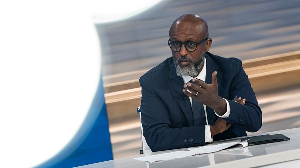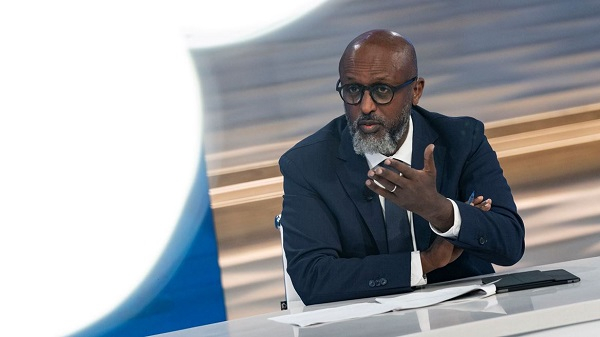 Abebe Selassie, IMF Africa Director
Abebe Selassie, IMF Africa Director
The International Monetary Fund (IMF) has revised its economic growth forecast for Ghana, projecting a 4 percent growth rate at the end of 2024 – up from its previous 3.1 percent estimate.
This updated projection was presented by Abebe Aemro Selassie, Director of IMF’s African Department, at a media briefing on Friday, October 25 during the October 2024 IMF/ World Bank Meetings in Washington DC, USA.
This reflects Ghana’s gradual recovery following a period of economic instability and recent reform efforts.
Mr. Selassie noted that the initial 3.1 percent forecast for the year had been submitted based on data available by mid-August, adhering to IMF’s reporting deadlines for all member-countries. However, a subsequent IMF mission to Accra provided updated data – allowing the IMF to adjust the growth outlook to 4 percent.
He explained that this change was primarily driven by government’s focus on economic reforms intended to stabilise and strengthen the country’s macroeconomic framework.
“Ghana has gone through a really wrenching period of macroeconomic instability,” Selassie observed.
He credited the country’s comprehensive reforms for the improved growth outlook, while emphasising the need for continued focus on balanced development spending and debt sustainability.
“Going forward, it’s about maintaining modest levels of fiscal deficits, especially during an election cycle, and avoiding the pitfalls Ghana has faced during election cycles in the past,” he said.
The IMF’s revised outlook comes amid challenges facing sub-Saharan Africa. The region’s economic growth is expected to remain steady at 3.6 percent this year – similar to last year, with a modest increase projected for next year.
The IMF noted that such growth levels are insufficient to address poverty reduction or other pressing developmental needs.
“This space, needless to say, is not sufficient to reduce poverty or, indeed, to recover the ground lost in recent years,” Mr. Selassie explained.
He added that the region’s economic performance varies significantly, with some diversified economies doing notably well while others face more pronounced challenges.
For Ghana, the IMF’s outlook reflects cautious optimism.
Mr. Selassie highlighted the progress made in narrowing budget deficits and stabilising debt-to-GDP ratios across the region, though he acknowledged that interest payments and fiscal adjustments continue to strain many African countries. In Ghana’s case, the ongoing debt restructuring process remains a key focus.
“There remains a significant amount of debt that needs to be agreed on – consistent with parameters of the programme – with non-eurobond commercial creditors,” he stated, underscoring the importance of securing favourable terms for the country.
While challenges persist, the Director expressed confidence in Ghana’s potential to maintain a stable economic trajectory.
He emphasised that achieving long-term growth requires consistent efforts to balance fiscal responsibility with developmental goals, particularly as the country approaches its next election cycle.
